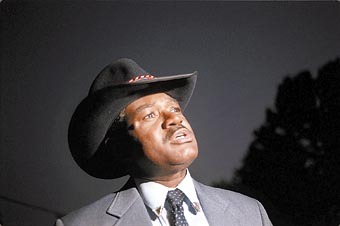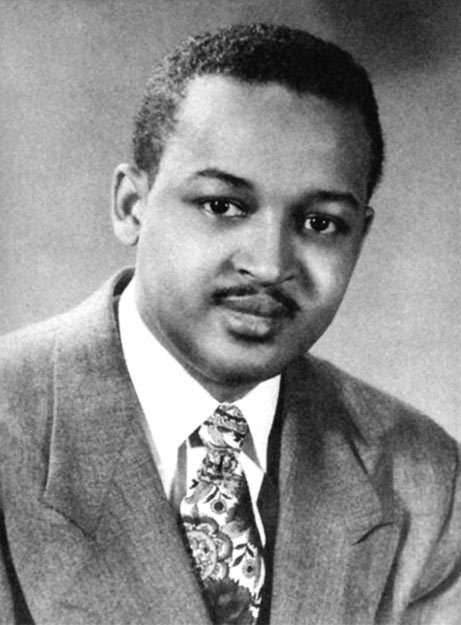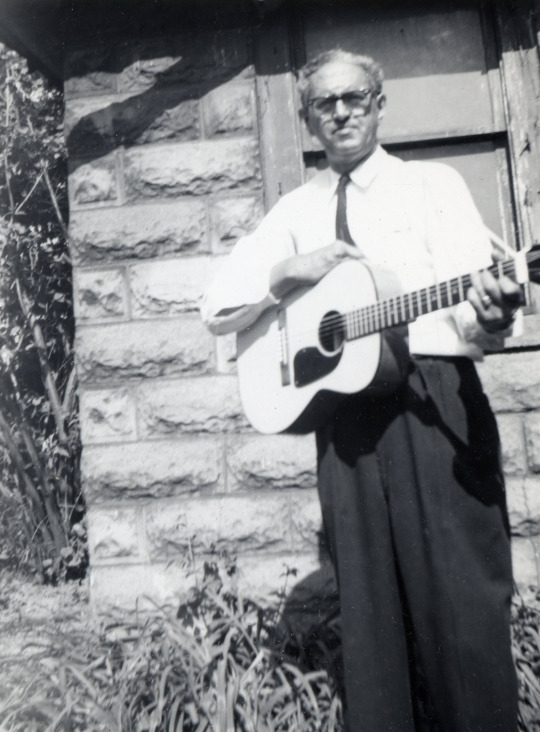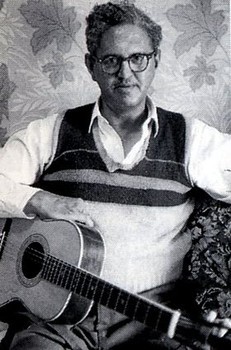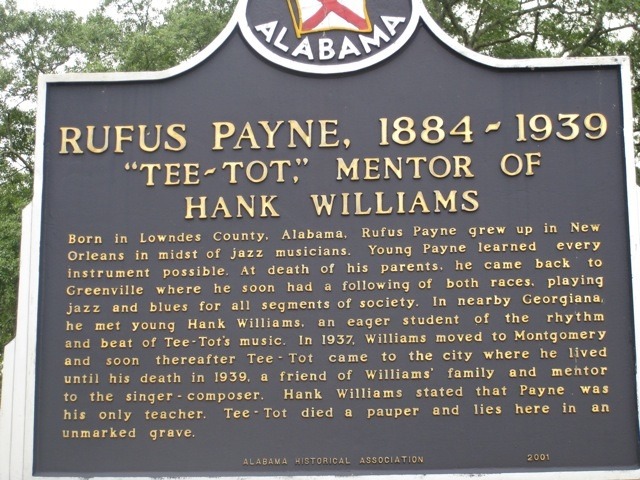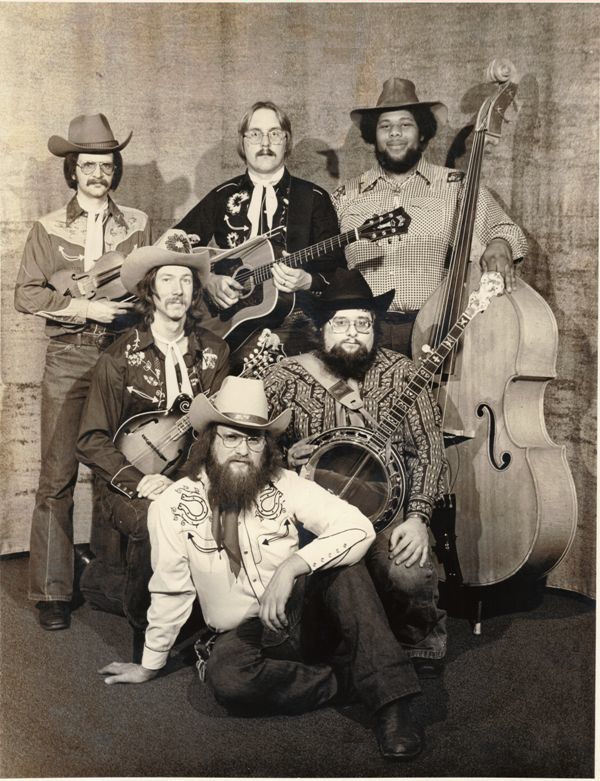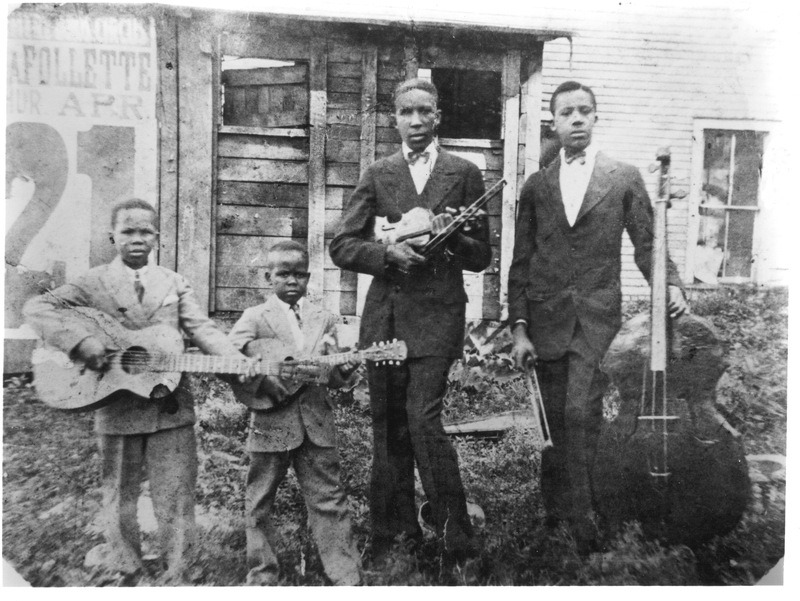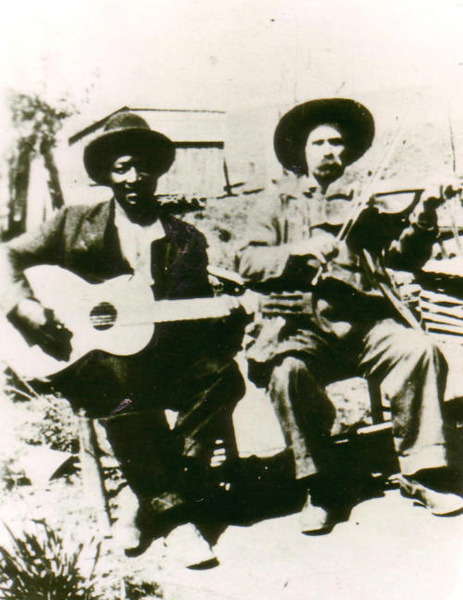Ivory Joe Hunter You can take a black guy to Nashville from right out of the cotton fields with bib overalls, and they will call him R&B. You can take a white guy in a pin-stripe suit who’s never seen a cotton field, and they will call him country. ~ O. B. McClinton | |
- E-mail - orgNote -  Report post to moderator Report post to moderator |
Millie Jackson You can take a black guy to Nashville from right out of the cotton fields with bib overalls, and they will call him R&B. You can take a white guy in a pin-stripe suit who’s never seen a cotton field, and they will call him country. ~ O. B. McClinton | |
- E-mail - orgNote -  Report post to moderator Report post to moderator |
J.J. Jones: country bassist
You can take a black guy to Nashville from right out of the cotton fields with bib overalls, and they will call him R&B. You can take a white guy in a pin-stripe suit who’s never seen a cotton field, and they will call him country. ~ O. B. McClinton | |
- E-mail - orgNote -  Report post to moderator Report post to moderator |
Coffey Anderson You can take a black guy to Nashville from right out of the cotton fields with bib overalls, and they will call him R&B. You can take a white guy in a pin-stripe suit who’s never seen a cotton field, and they will call him country. ~ O. B. McClinton | |
- E-mail - orgNote -  Report post to moderator Report post to moderator |
Arthur Alexander You can take a black guy to Nashville from right out of the cotton fields with bib overalls, and they will call him R&B. You can take a white guy in a pin-stripe suit who’s never seen a cotton field, and they will call him country. ~ O. B. McClinton | |
- E-mail - orgNote -  Report post to moderator Report post to moderator |
Henry Glover: wrote and produced many country songs at King Records
You can take a black guy to Nashville from right out of the cotton fields with bib overalls, and they will call him R&B. You can take a white guy in a pin-stripe suit who’s never seen a cotton field, and they will call him country. ~ O. B. McClinton | |
- E-mail - orgNote -  Report post to moderator Report post to moderator |
Cynthia Mae Talley You can take a black guy to Nashville from right out of the cotton fields with bib overalls, and they will call him R&B. You can take a white guy in a pin-stripe suit who’s never seen a cotton field, and they will call him country. ~ O. B. McClinton | |
- E-mail - orgNote -  Report post to moderator Report post to moderator |
Milton Patton You can take a black guy to Nashville from right out of the cotton fields with bib overalls, and they will call him R&B. You can take a white guy in a pin-stripe suit who’s never seen a cotton field, and they will call him country. ~ O. B. McClinton | |
- E-mail - orgNote -  Report post to moderator Report post to moderator |
L.M. Stone You can take a black guy to Nashville from right out of the cotton fields with bib overalls, and they will call him R&B. You can take a white guy in a pin-stripe suit who’s never seen a cotton field, and they will call him country. ~ O. B. McClinton | |
- E-mail - orgNote -  Report post to moderator Report post to moderator |
Ray Charles & Oak Ridge Boys with Janie Fricke, B.J. Thomas, Ricky Skaggs You can take a black guy to Nashville from right out of the cotton fields with bib overalls, and they will call him R&B. You can take a white guy in a pin-stripe suit who’s never seen a cotton field, and they will call him country. ~ O. B. McClinton | |
- E-mail - orgNote -  Report post to moderator Report post to moderator |
Shirley Caesar You can take a black guy to Nashville from right out of the cotton fields with bib overalls, and they will call him R&B. You can take a white guy in a pin-stripe suit who’s never seen a cotton field, and they will call him country. ~ O. B. McClinton | |
- E-mail - orgNote -  Report post to moderator Report post to moderator |
Nat King Cole You can take a black guy to Nashville from right out of the cotton fields with bib overalls, and they will call him R&B. You can take a white guy in a pin-stripe suit who’s never seen a cotton field, and they will call him country. ~ O. B. McClinton | |
- E-mail - orgNote -  Report post to moderator Report post to moderator |
Fats Domino You can take a black guy to Nashville from right out of the cotton fields with bib overalls, and they will call him R&B. You can take a white guy in a pin-stripe suit who’s never seen a cotton field, and they will call him country. ~ O. B. McClinton | |
- E-mail - orgNote -  Report post to moderator Report post to moderator |
Aaron Neville You can take a black guy to Nashville from right out of the cotton fields with bib overalls, and they will call him R&B. You can take a white guy in a pin-stripe suit who’s never seen a cotton field, and they will call him country. ~ O. B. McClinton | |
- E-mail - orgNote -  Report post to moderator Report post to moderator |
Etta James You can take a black guy to Nashville from right out of the cotton fields with bib overalls, and they will call him R&B. You can take a white guy in a pin-stripe suit who’s never seen a cotton field, and they will call him country. ~ O. B. McClinton | |
- E-mail - orgNote -  Report post to moderator Report post to moderator |
Brook Benton You can take a black guy to Nashville from right out of the cotton fields with bib overalls, and they will call him R&B. You can take a white guy in a pin-stripe suit who’s never seen a cotton field, and they will call him country. ~ O. B. McClinton | |
- E-mail - orgNote -  Report post to moderator Report post to moderator |
Lesley Riddle (1905 - 1980)
Born June 13, 1905, in Burnsville, North Carolina, guitarist Lesley Riddle is perhaps best known for his association with A. P. Carter and the Carter Family, which began around 1928. A. P. Carter was always searching for new material for the Carter Family, and one morning he returned to nearby Kingsport, Tennessee, to revisit John Henry Lyons, an exceptional African American guitarist. Leslie Riddle dropped by to visit Lyons. You can take a black guy to Nashville from right out of the cotton fields with bib overalls, and they will call him R&B. You can take a white guy in a pin-stripe suit who’s never seen a cotton field, and they will call him country. ~ O. B. McClinton | |
- E-mail - orgNote -  Report post to moderator Report post to moderator |
Rufus "Tee Tot" Payne (1884 - 1939) You can take a black guy to Nashville from right out of the cotton fields with bib overalls, and they will call him R&B. You can take a white guy in a pin-stripe suit who’s never seen a cotton field, and they will call him country. ~ O. B. McClinton | |
- E-mail - orgNote -  Report post to moderator Report post to moderator |
Vikki Carr You can take a black guy to Nashville from right out of the cotton fields with bib overalls, and they will call him R&B. You can take a white guy in a pin-stripe suit who’s never seen a cotton field, and they will call him country. ~ O. B. McClinton | |
- E-mail - orgNote -  Report post to moderator Report post to moderator |
Joe Tex You can take a black guy to Nashville from right out of the cotton fields with bib overalls, and they will call him R&B. You can take a white guy in a pin-stripe suit who’s never seen a cotton field, and they will call him country. ~ O. B. McClinton | |
- E-mail - orgNote -  Report post to moderator Report post to moderator |
Kazuya Kosaka & The Wagonmasters You can take a black guy to Nashville from right out of the cotton fields with bib overalls, and they will call him R&B. You can take a white guy in a pin-stripe suit who’s never seen a cotton field, and they will call him country. ~ O. B. McClinton | |
- E-mail - orgNote -  Report post to moderator Report post to moderator |
Kenji Nagatomi and the Tennessee Five You can take a black guy to Nashville from right out of the cotton fields with bib overalls, and they will call him R&B. You can take a white guy in a pin-stripe suit who’s never seen a cotton field, and they will call him country. ~ O. B. McClinton | |
- E-mail - orgNote -  Report post to moderator Report post to moderator |
Unity Bluegrass Band
You can take a black guy to Nashville from right out of the cotton fields with bib overalls, and they will call him R&B. You can take a white guy in a pin-stripe suit who’s never seen a cotton field, and they will call him country. ~ O. B. McClinton | |
- E-mail - orgNote -  Report post to moderator Report post to moderator |
Brent Williams interview (features clips from 1960s with partner Harry Cromwell)
Born and raised on a small farm in Hassetts, Nova Scotia, the youngest of eight children, at an early age Brent developed a love and appreciation of music from his mother. With his first guitar in hand and his older brother Robert teaching him a few chords, by the age of seven Brent knew he wanted to make music his life and the first steps were taken on a path that would reveal an incredible talent and lead to a long and successful career. . You can take a black guy to Nashville from right out of the cotton fields with bib overalls, and they will call him R&B. You can take a white guy in a pin-stripe suit who’s never seen a cotton field, and they will call him country. ~ O. B. McClinton | |
- E-mail - orgNote -  Report post to moderator Report post to moderator |
Kohichi Moriyama You can take a black guy to Nashville from right out of the cotton fields with bib overalls, and they will call him R&B. You can take a white guy in a pin-stripe suit who’s never seen a cotton field, and they will call him country. ~ O. B. McClinton | |
- E-mail - orgNote -  Report post to moderator Report post to moderator |
The Armstrong Brothers Band
You can take a black guy to Nashville from right out of the cotton fields with bib overalls, and they will call him R&B. You can take a white guy in a pin-stripe suit who’s never seen a cotton field, and they will call him country. ~ O. B. McClinton | |
- E-mail - orgNote -  Report post to moderator Report post to moderator |
Whistler's Jug Band You can take a black guy to Nashville from right out of the cotton fields with bib overalls, and they will call him R&B. You can take a white guy in a pin-stripe suit who’s never seen a cotton field, and they will call him country. ~ O. B. McClinton | |
- E-mail - orgNote -  Report post to moderator Report post to moderator |
Arnold Shultz (1886–1931) Bluegrass Today
Arnold Shultz was a blues-guitar-playing mentor and friend of Bill Monroe’s. You can take a black guy to Nashville from right out of the cotton fields with bib overalls, and they will call him R&B. You can take a white guy in a pin-stripe suit who’s never seen a cotton field, and they will call him country. ~ O. B. McClinton | |
- E-mail - orgNote -  Report post to moderator Report post to moderator |
Cedric Watson You can take a black guy to Nashville from right out of the cotton fields with bib overalls, and they will call him R&B. You can take a white guy in a pin-stripe suit who’s never seen a cotton field, and they will call him country. ~ O. B. McClinton | |
- E-mail - orgNote -  Report post to moderator Report post to moderator |
You can take a black guy to Nashville from right out of the cotton fields with bib overalls, and they will call him R&B. You can take a white guy in a pin-stripe suit who’s never seen a cotton field, and they will call him country. ~ O. B. McClinton | |
- E-mail - orgNote -  Report post to moderator Report post to moderator |
 New topic
New topic Printable
Printable